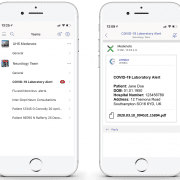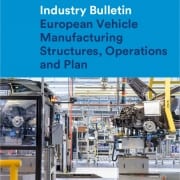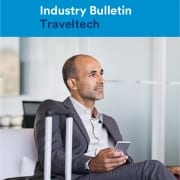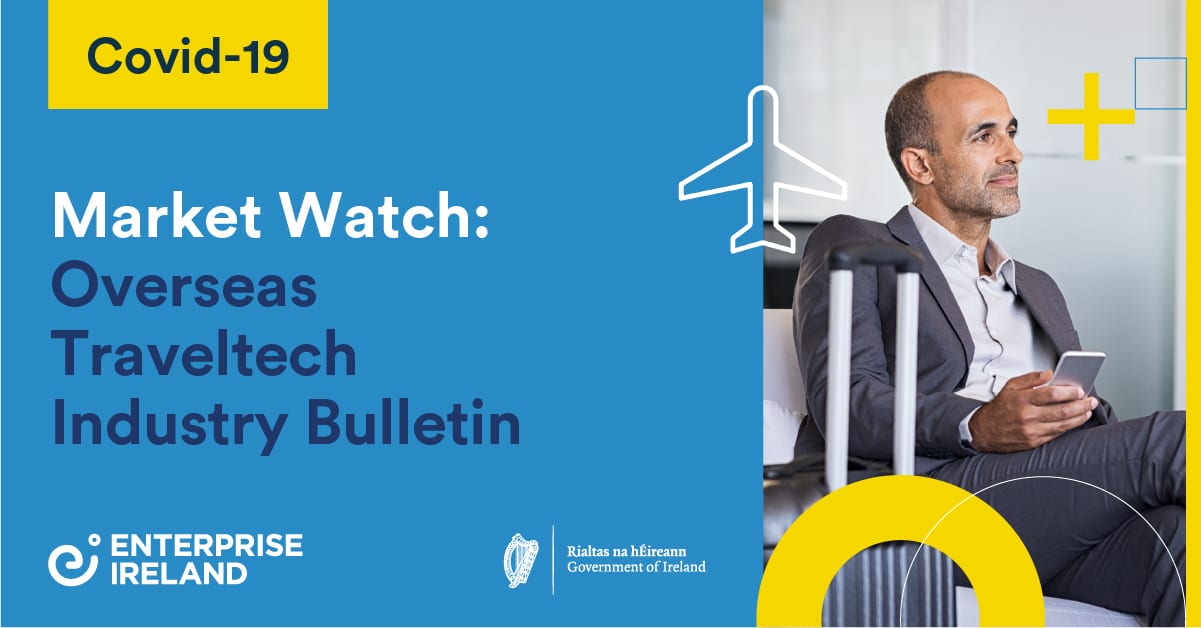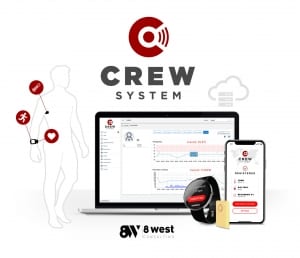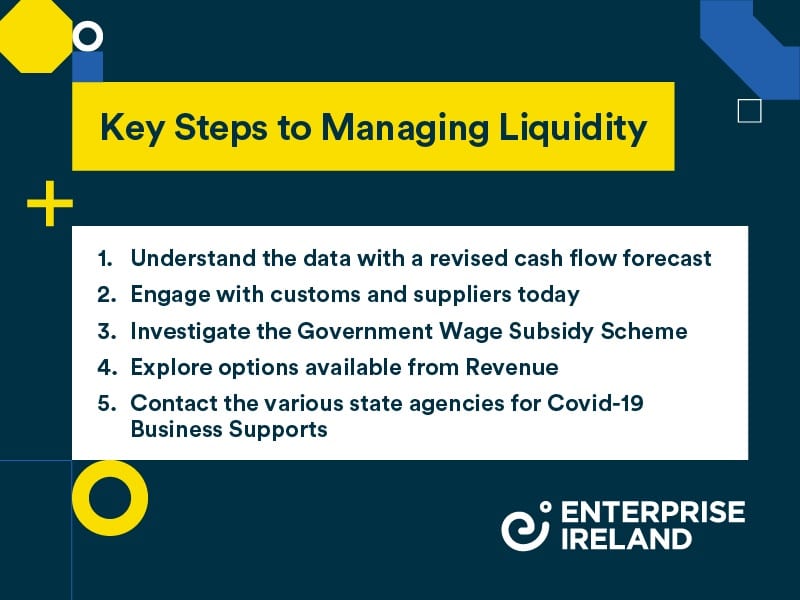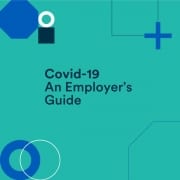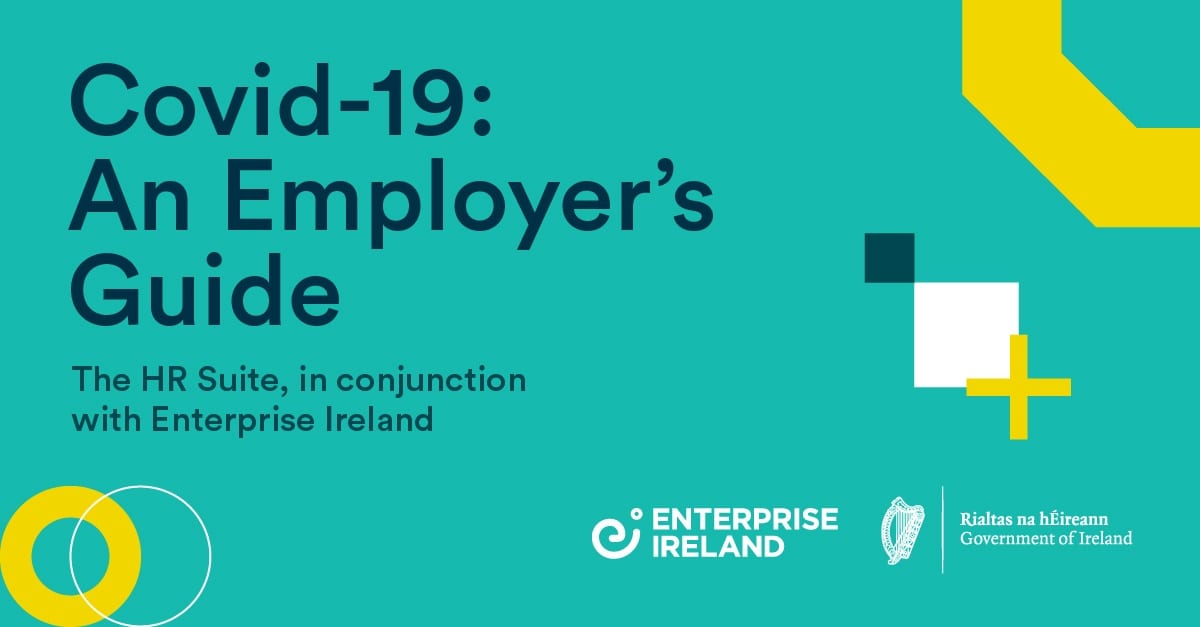Medxnote helping the NHS to improve response to Covid-19
Dublin company Medxnote has responded to the Covid crisis by creating a clinical bot that is significantly cutting the time it takes to notify medical staff of Covid 19 test results.
The company specialises in Robotic Clinical Assistants, which are helping to improve patient flow, hospital efficiency and quality of care by giving medical staff access to previously siloed clinical data. The bots work within Microsoft Teams, the workplace collaboration platform that is part of the Microsoft Office 365 suite of products.
Niall Rafferty, co-founder and CEO of Medxnote, explains. “We’ve created a suite of clinical bots, which automate human actions by connecting a hospital’s electronic health record systems to the Microsoft Teams messaging app.
“So, for example, a doctor can message the bot via a mobile and ask for a specific report on a patient. The bot searches the hospital’s system and serves reports almost instantly. Medical staff can also receive push notifications relating to test results and other clinical information.
“As we already had a bot specialising in results notification for flu and Norovirus positive patients, we were able to very quickly adapt it to include Covid-19 results.”
 At a time when medical staff are struggling to cope with the Coronavirus pandemic, the ability to access test results in real time is hugely beneficial. Rather than having to periodically look up results on a PC, which are limited on the ward, staff in some hospitals in the UK’s NHS can now receive notifications on their mobile phones as soon as the results are released by the lab.
At a time when medical staff are struggling to cope with the Coronavirus pandemic, the ability to access test results in real time is hugely beneficial. Rather than having to periodically look up results on a PC, which are limited on the ward, staff in some hospitals in the UK’s NHS can now receive notifications on their mobile phones as soon as the results are released by the lab.
The response from medical staff has been extremely positive as it enables them to prioritise care and make the best use of isolation units.
Dr Ashwin Pinto of University Hospital Southampton, the first hospital to use the Covid-19 bot, says:
“We can now give doctors and nurses real-time data. I can get Covid-19 results on my phone as soon as they are released by the lab. We know where that patient is, so we can make sure they go to the right care environment and that staff are safe as well. That’s been transformational.”
The bot is now also in use in Liverpool University Hospital and is garnering interest from hospitals across the NHS.
Timely communication – better care
Medxnote, set up in 2013 by Rafferty and Garfield Connolly, is the only company building clinical chat bots within Microsoft Teams. As well as the test results notification bot, Medxnote has created an inter-department consultation bot. This provides clinicians with real-time access to referral queues leading to more efficient discharge of patients. In one hospital, use of the bot resulted in speeding up the process by a factor of 15.
Another bot enables medical staff to upload images to the patient’s medical record, while faster and easier recruitment of patients to clinical trials is being achieved through a bot that sends a notification message to the clinical trial team when a suitable patient presents in the hospital.
Medxnote’s latest development, a pager bot, has been another response to the Covid crisis.
“The demand for medical examiners is higher than normal at the minute. Usually a pager system is used but we created a bot that will send a message out to the examiner via Microsoft Teams and enable them to open a chat or do a video call with the nurses,” says Rafferty.
The pager replacement solution brings the company full circle back to where it began.
“We initially set up the business to create a solution to replace pagers in hospitals. Then we changed to providing secure messaging for medical staff. That has led us to where we are today. About two years ago we began working with Microsoft Teams and now we’re a Microsoft partner,” says Rafferty.
A world of opportunity
In response to Covid 19 Microsoft accelerated the roll-out of its Teams across the NHS. As a result, 1.3 million more people now use the software, opening up a huge opportunity for Medxnote to sell in its productivity and process enhancing integrations.
The company is also looking to Europe, initially targeting France, Sweden and Portugal, which are all licensed for Microsoft Teams.
“We’ve multiple opportunities worldwide because we’re on the Microsoft Teams Co-sell Programme, and we’ve also benefitted from great support from Enterprise Ireland’s international offices,” says Rafferty.
“I believe that this pandemic will change patterns of work and that people will be more liable to work digitally than they were before. In the healthcare space, that will drive better communication, informed clinical decision making and more efficient patient throughput and ultimately result in improved quality of care in hospitals.”

